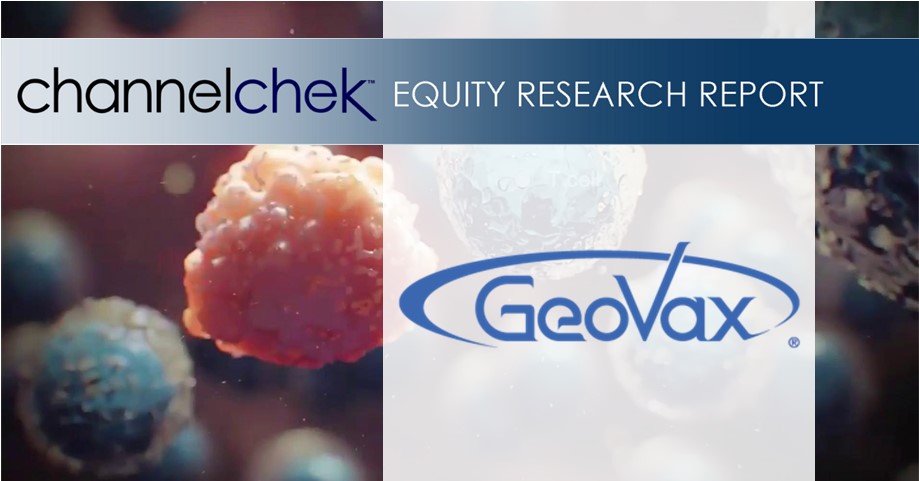
Tuesday, July 29, 2025
GeoVax Labs, Inc. is a clinical-stage biotechnology company developing novel therapies and vaccines for solid tumor cancers and many of the world’s most threatening infectious diseases. The company’s lead program in oncology is a novel oncolytic solid tumor gene-directed therapy, Gedeptin®, presently in a multicenter Phase 1/2 clinical trial for advanced head and neck cancers. GeoVax’s lead infectious disease candidate is GEO-CM04S1, a next-generation COVID-19 vaccine targeting high-risk immunocompromised patient populations. Currently in three Phase 2 clinical trials, GEO-CM04S1 is being evaluated as a primary vaccine for immunocompromised patients such as those suffering from hematologic cancers and other patient populations for whom the current authorized COVID-19 vaccines are insufficient, and as a booster vaccine in patients with chronic lymphocytic leukemia (CLL). In addition, GEO-CM04S1 is in a Phase 2 clinical trial evaluating the vaccine as a more robust, durable COVID-19 booster among healthy patients who previously received the mRNA vaccines. GeoVax has a leadership team who have driven significant value creation across multiple life science companies over the past several decades.
Robert LeBoyer, Senior Vice President, Equity Research Analyst, Biotechnology, Noble Capital Markets, Inc.
Refer to the full report for the price target, fundamental analysis, and rating.
GeoVax Reports 2Q25 Financials With Updates Trials For MVA and Gedeptin. GeoVax reported a 2Q25 loss of $5.4 million or $(0.35) per share. Revenues of $0.9 million were for work performed under the BARDA contract prior to its cancellation in April 2025. During the quarter, the EMEA communicated that the GEO-MVA vaccine in development for smallpox/Mpox could skip Phase 1 and 2, then receive approval based on Phase 3 immune markers. The company also amended its trial plans for Gedeptin in HNSCC.
GEO-MVA Phase 3 Is Expected To Begin In 2H26. As discussed in our Research Note on June 17,GeoVax received Scientific Advice (SA) from the EMA for GEO-MVA smallpox/Mpox vaccine stating the Phase 1 and 2 studies would not been needed. An MAA will only require a single Phase 3 immuno-bridging trial comparing the immune response in healthy volunteers receiving GEO-MVA against the approved vaccine. The study is expected to begin in 2H26.
Get the Full Report
Equity Research is available at no cost to Registered users of Channelchek. Not a Member? Click ‘Join’ to join the Channelchek Community. There is no cost to register, and we never collect credit card information.
This Company Sponsored Research is provided by Noble Capital Markets, Inc., a FINRA and S.E.C. registered broker-dealer (B/D).
*Analyst certification and important disclosures included in the full report. NOTE: investment decisions should not be based upon the content of this research summary. Proper due diligence is required before making any investment decision.




